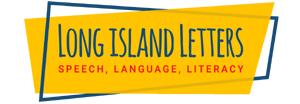STUTTERING AND FLUENCY THERAPY
Stuttering often brings more than speech disruptions; its impact resonates deeply within an individual’s daily life. For many, the greatest challenge lies not in the stutter but in its profound effects. Children and adults may grapple with losing control over a fundamental aspect of communication, triggering deep unease and frustration. These emotions can lead to avoidance of social interactions, reduced participation in educational or professional settings, and an overwhelming sense of embarrassment.
Many young children encounter transient episodes of stuttering and speech disfluency during their developmental phases while honing their communication abilities. Often, time acts as the most effective healer, with many naturally outgrowing these phases. However, for a significant cohort of children, stuttering can persist into adulthood without appropriate intervention, necessitating proper treatment for resolution.
Should you observe your child grappling with fluency challenges or experiencing a notable impact on their daily routine due to stuttering, consider consulting your doctor or arranging an evaluation with a speech therapist. Before the worsening of the stutter, initiating therapy at an early stage typically yields the most effective means of managing and addressing stuttering hurdles. Our speech therapists travel throughout Manhattan, Brooklyn, Queens, Staten Island, and the Bronx.
Signs of Stuttering
Recognizing and understanding the signs of stuttering can prompt timely intervention and support for your child’s fluent speech development.
Stuttering may manifest through various signs:
- Repetitions: Frequent repetition of sounds, syllables, words, or phrases.
- Blocks: Momentary halts or pauses in speech, making initiating or continuing a word difficult.
- Prolongations: Lengthening sounds or syllables, creating an extended pause within words.
- Tension or Struggle: Visible signs of tension, such as facial grimacing or physical strain while attempting to speak.
- Avoidance Behaviors: Efforts to circumvent words or situations that trigger stuttering, leading to limited verbal interactions.
- Frustration or Anxiety: Emotional responses like frustration, anxiety, or embarrassment during speaking instances.
Recognizing these signs can prompt early intervention, effectively managing and treating stuttering.
How is Stuttering Diagnosed?
Diagnosing stuttering involves a comprehensive assessment by a speech-language pathologist (SLP) or a speech therapist specializing in fluency disorders.
The diagnostic process typically involves several key components:
- Case History: The clinician collects information about the individual’s speech patterns, developmental milestones, family history, and any prior speech therapy or interventions.
- Speech Assessment: The SLP evaluates the individual’s speech patterns, looking for signs such as repetitions, prolongations, blocks, or secondary behaviors (like facial tension) during speech.
- Language and Communication Evaluation: Assessing overall communication abilities, including language skills, cognitive abilities, and social communication, to determine the impact of stuttering on daily life.
- Observation: The SLP observes the individual in various settings and speaking situations to gauge how stuttering affects communication across different contexts.
- Psychological and Emotional Assessment: Exploring the emotional impact of stuttering, assessing feelings, attitudes, and reactions to speech disruptions.
Following this comprehensive assessment, the SLP can formally diagnose stuttering and determine the severity of the condition. The diagnosis is the foundation for tailoring a personalized treatment plan to manage and improve fluency, communication skills, and overall confidence.
How Can Our NYC Fluency Therapy Help?
At Brooklyn Letters, our speech-language pathologists specializing in fluency disorders adopt a multifaceted approach, serving a pivotal role in supporting individuals navigating stuttering and its associated challenges.
Our team conducts thorough assessments, meticulously analyzing speech patterns, language proficiency, and the pervasive impact of stuttering on daily communication. These evaluations involve meticulous observation, comprehensive analysis of speech samples, and precise diagnosis of fluency disorders.
Tailoring personalized treatment plans stands as a cornerstone of our practice, considering each individual’s unique needs, the severity of their condition, and desired outcomes. Our interventions integrate evidence-based therapeutic techniques to enhance fluency, mitigate stuttering instances, and fortify overall communication skills.
Beyond therapy sessions, we serve as educators and counselors, sharing insights about stuttering, offering strategies for effective management, and extending emotional support to individuals and their families. Collaboration with fellow healthcare professionals, educators, and community stakeholders embodies our commitment to fostering a comprehensive support network.
Our dedication to ongoing professional development ensures that we remain at the forefront of the latest research and interventions, guaranteeing optimal care for our clients. Regular progress evaluations and adaptive therapy plans exemplify our steadfast dedication to continual improvement and empowerment for individuals navigating fluency disorders.
Experience personalized fluency disorder therapy from our expert speech-language pathologists. We travel throughout Manhattan, Brooklyn, Queens, Staten Island, and the Bronx. Contact us today!


